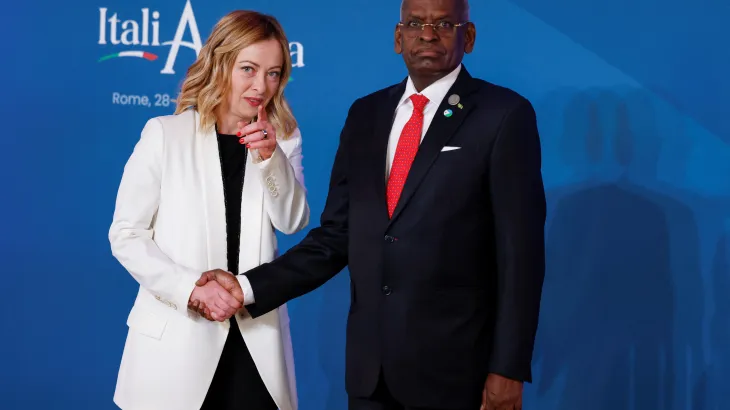This year, the picturesque coastal city of Bari, Italy, will play a significant role in global diplomacy as it hosts the Group of Seven (G7) leaders’ meeting. The Italian Prime Minister, Giorgia Meloni, has outlined an ambitious agenda that prominently features Africa. Her vision is to establish Italy as a crucial energy hub, bridging Europe and the African continent. While the initiative is bold, experts express reservations about the clarity and economic viability of this plan.
Italy’s Ambitious Vision
Prime Minister Meloni’s strategy involves leveraging Italy’s geographic location and existing infrastructure to become a pivotal conduit for energy resources flowing from Africa to Europe. The Mediterranean Sea, historically a boundary, is poised to become a connector, fostering increased energy cooperation and trade.
Meloni’s plan is multifaceted, aiming not only to enhance energy security for Europe but also to stimulate economic growth and stability within Africa. The focus will be on developing and expanding energy infrastructure, including pipelines and renewable energy projects, which are expected to bring mutual benefits. For Europe, this means a more diversified energy supply and reduced dependence on Russian energy. For Africa, it presents opportunities for economic development and technological advancements.
Challenges and Skepticism
Despite the optimism surrounding this initiative, several experts have raised concerns about its feasibility. The primary issue is whether Italy possesses a clear, detailed vision and the necessary economic resources to implement such an extensive project.
Economic Resources: Transforming Italy into a central energy hub requires significant investment in infrastructure. This includes upgrading existing facilities, constructing new pipelines, and developing renewable energy sources. Given the current economic climate, with many European nations grappling with post-pandemic recovery, securing the needed funds is a formidable challenge.
Political Stability: Africa’s political landscape is diverse and, in some regions, unstable. Navigating the complex political environments of various African nations to secure agreements and ensure project continuity can be daunting. The success of such an initiative heavily depends on long-term political stability and cooperation.
Technological and Logistical Hurdles: Developing energy infrastructure on the scale envisioned by Meloni is technically and logistically demanding. Ensuring that the infrastructure is resilient, efficient, and sustainable requires cutting-edge technology and meticulous planning. Additionally, coordinating across multiple countries with varying regulations and standards adds another layer of complexity.
Strategic Importance
Despite these challenges, the strategic importance of Meloni’s vision cannot be overstated. Europe’s energy security is a pressing issue, especially in the context of geopolitical tensions and the ongoing transition to renewable energy. By positioning Italy as a central energy hub, Meloni aims to play a crucial role in shaping the future energy landscape of Europe.
Moreover, fostering stronger ties with Africa aligns with broader international development goals. Enhancing energy access and infrastructure can significantly contribute to economic growth, reduce poverty, and promote stability in African countries.

